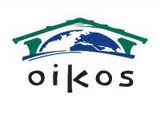Ecological Economics

OIKOS, Greek for ‘household,’
is the root of ECO-logy…
ECU-menism…
and ECO-nomy.
The goal of ecological economics is to manage the Earth’s household for all members over the long run. The key words here are the Earth’s household, all members, and the long run. Our household – and all its members (human and non-human) – must be able to survive.
Who are we? We are members of the household
Just as neo-classical economics assumed the importance of individuals and their desires, so ecological economics assumes the importance of Earth’s community. These are fundamentally different worldviews; at one extreme are societies that stress individualism to the point of libertarian anarchy; at the other extreme are societies that are completely communitarian. Our own society has become increasingly libertarian, as individuals have freed themselves from traditional religious and political communities. Can an ecological model give us a better way to achieve a balance between individual freedom and community integrity?
We can view an economic system as an upward line which each has to climb; or we can view it as a circle within which all must live. The first system views people as consumers of nature’s wealth; the other system views people as members of nature’s household. In the first system each of us is alone, finding our own way up the ladder; in the second system, we are part of the circle, members of an interdependent community.
The circular system focuses on sustainability: using all forms of capital – nature’s resources, human resources, social resources, cultural resources – to ensure that present and future generations can share the good life.
How do we work for sustainability?
· Sustainability is possible only if there is just distribution of resources.
- Before allocating resources, a community must agree on what is necessary for the good life.
- All kinds of resources must be considered in this vision, including natural resources.
- The goal is the good life for all: for the Earth, care of its natural resources; for humans, a basic standard of living, a democratic form of government, and opportunities for cultural, technological, educational, social, and spiritual development.
The ecological society: is it the good life?
In the ecological society, the ‘good life’ is not about having ‘more and more’ but about having ‘enough.’ Consumption is not the problem, but excessive consumption by some (while others and the planet suffer) is the problem.
The ecological society: is it the good life for all?
Would the middle way – moving a billion privileged people and a billion impoverished people toward each other – be the good life for all? There is little doubt that it would be an improvement for the poor, and there is also little doubt that it would be a different good life for the privileged. It would require frugality on the part of the privileged. Frugality is not a popular virtue; it is even unpatriotic, since our economy depends on consumption. We might call it a subversive virtue. But for Christians, the refusal to practice frugality is sinful. Sin is living in a way that undercuts God’s desire that all thrive.
The ecological society: is it the good life for planet earth?
Human beings have engaged in ‘apartheid thinking’ – believing that our lives and economy exist apart from nature. But by destroying the health of nature, we have also been undermining our own health. How could our society move to a ecological economy? The task seems monumental.
Can theology help us re-envision the good life?
If we humans really want to support the global household, we will need an attitude adjustment (and we’ll have to follow some new house rules: take only our share; clean up after ourselves; and keep the house in good repair for future occupants). But for attitudes to change, we must want something else – and to want something, we must be able to imagine it.
In Life Abundant, Sallie McFague says the role of theology is to help us imagine an alternate worldview.
